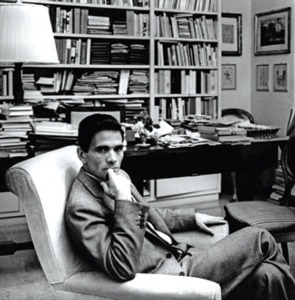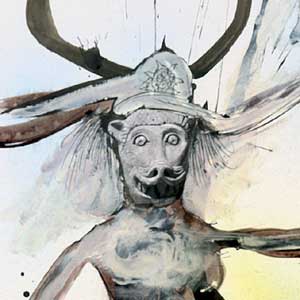There was a phase in my academic career, back in the early 80s, when I was unable to resist any invitation to appear on television. The subject matter was irrelevant. I was as happy on Look North talking about the commercial benefits of the new Tadcaster by-pass as I was on Kilroy discussing the social implications of adolescents with two heads. Neither did I confine myself to chat shows. My name became so familiar to television researchers in the north east that I was soon invited to present my very own programme, a series of late-night hour-long discussions with local academics snappily entitled Senior Common Room. We were filmed against a canvas backdrop of antique books and asked to take periodic drinks from the decanter of port, even though the nearest thing to a decanter most of us had ever encountered in an SCR was a three-pint jug of Tetley's.
The content was as bogus as the set. Whereas most denizens of an average SCR spend their time talking about car-parking spaces, we were firmly instructed to discuss only such meaty matters as the forthcoming energy crisis and the deleterious effects of 19th century romanticism upon the Enlightenment. The Northern Echo critic, labouring to find something good to say about this pretentious charade, could only come up with "worthy but ponderous".
It was shortly after I learned that Senior Common Room was not returning for another run that I was faced with an even greater television challenge. A researcher rang from Yorkshire Television to ask if there was any available sociological literature on the male menopause. I told here that I knew of none. But, of course, such research silence could be explained by the un-readiness of men to talk about their feelings or emotions. "Excuse me asking," she said, "but could you tell me if you've had your own menopause?" It was a difficult moment. Could I really admit to having experienced a condition that until then had always struck me as a sad attempt by men to appropriate some of the menopausal sympathy properly accorded to women? Of course I could.
"Oh yes," I said, with the confidence of someone reporting upon the arrival of the morning's post. "It all began a couple of years ago. One day I was feeling hunky dory and then suddenly I began to feel sort of strange." My researcher was so delighted to find a prospective interviewee after weeks of cold calling that she happily fed me the critical symptoms. "You feel strange and depressed?" "Yes, that's it." "You feel that you've reached your career goal but somehow it now seems curiously pointless?" "Absolutely." "Lacking in meaning?"
"Bang on."
This was going to be a doddle.
My knowledge of the syndrome was quite enough to elevate me to pole position for the special edition of Where There's Life devoted to the condition. Three cameras hovered around me as I explained the anguish I was currently enduring to the admirably sympathetic presenter of the show, Doctor Miriam Stoppard.
There was only one brief hiccup. During the warm-up period, Doctor Stoppard asked me a few trial questions about such side effects of my menopause as lack of sleep and suicidal intentions. I thought I'd handled it rather well. But the director was less happy. Minutes before the programme went on air he came over and suggested that I was sounding altogether too up beat about my experiences. "Try to speak more slowly. Remember, you're a victim".
I dutifully lowered my voice, spoke in shorter sentences, and even managed a telling stutter as I described the moment when I'd reached my career goal and suddenly found it all curiously pointless. It was quite a triumph. The studio audience roundly applauded the more moving parts of my testimony and the following morning Mary Kenny, writing in the Daily Mail, described my readiness to tell the world about my menopause as "refreshingly brave".
At the time I rather expected that my prime-time confession could only lead to greater television heights. But the phone failed to ring. In the end I called up some former television contacts to discover the reasons for the silence.
Most were politely evasive but eventually a kindly producer from Look North marked my card. "We'd like to use you again, Laurie. But the word has come down from the top that we shouldn't do so while you're still going through the menopause. But, hey, do give us a ring the moment those hot flushes subside".
That's the problem with being a self-confessed victim. There's no easy way back.

